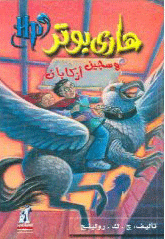
by Brian Whitaker
Visit an Arab bookshop and there’s a fair chance you’ll find more than a few copies of Shifra Dafinshi and the tales of Hari Butor. In case you haven’t guessed, I’m talking here about Arabic translations of The Da Vinci Code and Harry Potter.
While titles such as these find a ready market in the Middle East, just as they do elsewhere, people often lament the poor state of home-grown Arabic publishing and the dearth of worthwhile books translated into Arabic from other languages.
The Bush administration made much of this back in 2004 when it announced ambitious (but now mostly forgotten) plans to build a “knowledge society” in the Middle East. The nature of the problem is a good deal more complex – and its solution more difficult – than the US appreciated at the time, but a new Arab initiative due to be launched in November could be an important step forward.
The project, known as Kalima (“Word” in Arabic), aims “to fund the translation, publication, and distribution of high-quality works of classic and contemporary writing from other languages into Arabic” – starting with 100 titles in the first year.
“Currently in most Arab countries, ‘great works’ of world literature or academia are only available in the original language, limiting access to a select group of society,” Kalima says. “The rest of the world has enjoyed a wealth of both domestic and translated writing, why should the Arab world be any different? Arabic is also a beautiful, expressive language, and one that should be celebrated and valued more by giving readers a greater choice of quality titles in translation.”
Kalima is working in collaboration with existing publishers (more than 20 of them so far) – in effect carrying the financial risk on the books it selects for translation. Money shouldn’t be too much of a problem since it’s backed by the crown prince of Abu Dhabi and funded by the Abu Dhabi Authority for Culture and Heritage.
Kalima also seems to recognise that getting titles into print is not the whole story and that it will also have to work on improving the distribution and marketing of books in the Middle East, as well as investing in translation as a profession, “so that we encourage more and better quality translators”.
The process of choosing books for translation is already under way and the first 100 are due to be announced in November. Kalima declines to mention any names in the meantime but has outlined its selection criteria.
Books that can be considered include “great works” and prize winners (Pulitzer, Booker, etc). The aim is to achieve a balance of 10% classics, 20% “modern” and 70% contemporary. Literature and scientific texts will each account for 25%. The proportion of bestsellers will be capped at 20%. Sixty per cent will be from languages other than English and at least 10% will be works of non-western origin.
In theory, the plan sounds very sensible, though we’ll have to wait until November for proof of the pudding. It will be interesting to see whether the selectors make any concessions to local cultural/religious sensibilities or the persistent but declining effects of government censorship.
In the meantime, I’d be interested to hear which titles readers would like to see included among the first 100.
[Originally posted September 6, 2007 at: http://commentisfree.guardian.co.uk/brian_whitaker/2007/09/required_reading.html. Brian Whittaker can be contacted at: brian@al-bab.com]